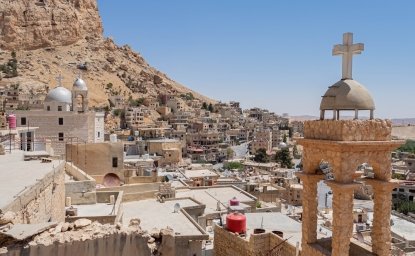By Garrett Nada
 Egyptian President Mohamed Morsi marks one-year in power on June 30, 2013. It has been a contentious year fraught with growing troubles—and many protests. The opposition is calling for the biggest demonstrations since the 2011 uprising on the anniversary. The following run-down of Egypt’s top ten problems helps explain growing public frustration and rage.
Egyptian President Mohamed Morsi marks one-year in power on June 30, 2013. It has been a contentious year fraught with growing troubles—and many protests. The opposition is calling for the biggest demonstrations since the 2011 uprising on the anniversary. The following run-down of Egypt’s top ten problems helps explain growing public frustration and rage.
- Protests at all-time high: The Cairo-based International Development Center recorded 9,427 protests during Morsi’s first year in office. Egyptians demonstrated nearly seven times more per month than in 2010, the last year of Hosni Mubarak’s rule, according to Ahram Online.
- Increasing calls for resignation: The opposition Tamarod (or “Rebel”) campaign claims to have collected more than 15 million signatures for a petition demanding Morsi’s resignation. About 13 million voted for Morsi out of the 26 million who voted in the June 2012 presidential election.
- Rising unemployment: The number of unemployed reached 3.5 million in the first quarter of 2013, equal to 13.2 percent of the labor force. Some 77 percent of the unemployed are between 15 and 29 years old. More than 162,000 Egyptians lost their jobs in the last quarter of 2012 alone, according to government statistics. Overall unemployment stood at 12.6 percent in June 2012 when Morsi took office.
- High crime rate: The crime rate has almost tripled since 2010, according to interior ministry officials. The number of reported armed robberies increased more than tenfold from 233 incidents in 2010 to 2,807 incidents in 2012. Home invasions rose nearly 60 percent ― from 7,368 incidents in 2010 to 11,699 robberies in 2012. Car thefts more than tripled from 4,973 thefts in 2010 to 21,166 thefts in 2012, according to the Financial Times.
- Soaring food prices: Food and beverage prices have increased 8.9 percent between May 2012 and May 2013, according to government statistics. Waiting lines outside state-subsidized bakeries have reportedly gotten longer as food prices continue to rise. The average Egyptian family spends about 40 percent of its income on food, the World Food Programme’s Egypt director told Reuters in April 2013.
- Fuel shortages: Some gas stations have reportedly been receiving less than half their usual amount of diesel fuel, according to Ahram Online. Long lines outside gas stations have caused huge traffic jams. Morsi’s administration has blamed the shortage on illegal smuggling. The shortage has reportedly created a black market in which one liter of diesel is sold for 40 to 50 Egyptian pounds, about double the usual price. An oil ministry source told Ahram Online that Egypt meets 90 percent of its domestic fuel demand and imports the remainder, which is expensive.
- Electricity cuts: Rolling blackouts have become common across the country. In May 2013, Morsi said that Egypt can only meet 80 percent of its electricity needs, citing outdated infrastructure. He said the government would only allow the power to be cut two hours twice daily. The state-run National Energy Control Centre has asked citizens to ration electricity use during the summer. Blackouts were not as frequent during Mubarak’s rule.
- Stock market down: In mid-June 2013, trading in Egypt’s benchmark stock index hit a five-year low, according to Bloomberg. It reported that Egypt’s index was the “world’s worst performer in June.”
- Sexual harassment: About 83 percent of women had been sexually harassed, according to a 2008 study by the Egyptian Center for Women’s Rights. The number rose to 99.3 percent in 2013, according to a U.N. Women report released in May. Nearly half of victims believed the problem has worsened since the 2011 revolution. About 83 percent of the women surveyed said they do not feel safe in the street.
- Lower approval ratings: Only 32 percent of Egyptians approve of President Morsi’s performance in June 2013, down from 78 percent in October 2012 ― when he completed his first 100 days in office. Only 25 percent of those surveyed by Baseera public opinion research said they would re-elect Morsi if they had to vote tomorrow. Morsi’s approval rating fell a whopping ten percent just between May and June 2013.
In mid-2012, a non-profit group founded by young Egyptians created the original “Morsi Meter” to chart the president’s record during his first 100 days in office. This rundown plays off their barometer.
Photo credit: By Jonathan Rashad (Flickr) [CC-BY-2.0 (http://creativecommons.org/licenses/by/2.0) or CC-BY-3.0 (http://creativecommons.org/licenses/by/3.0)], via Wikimedia Commons




